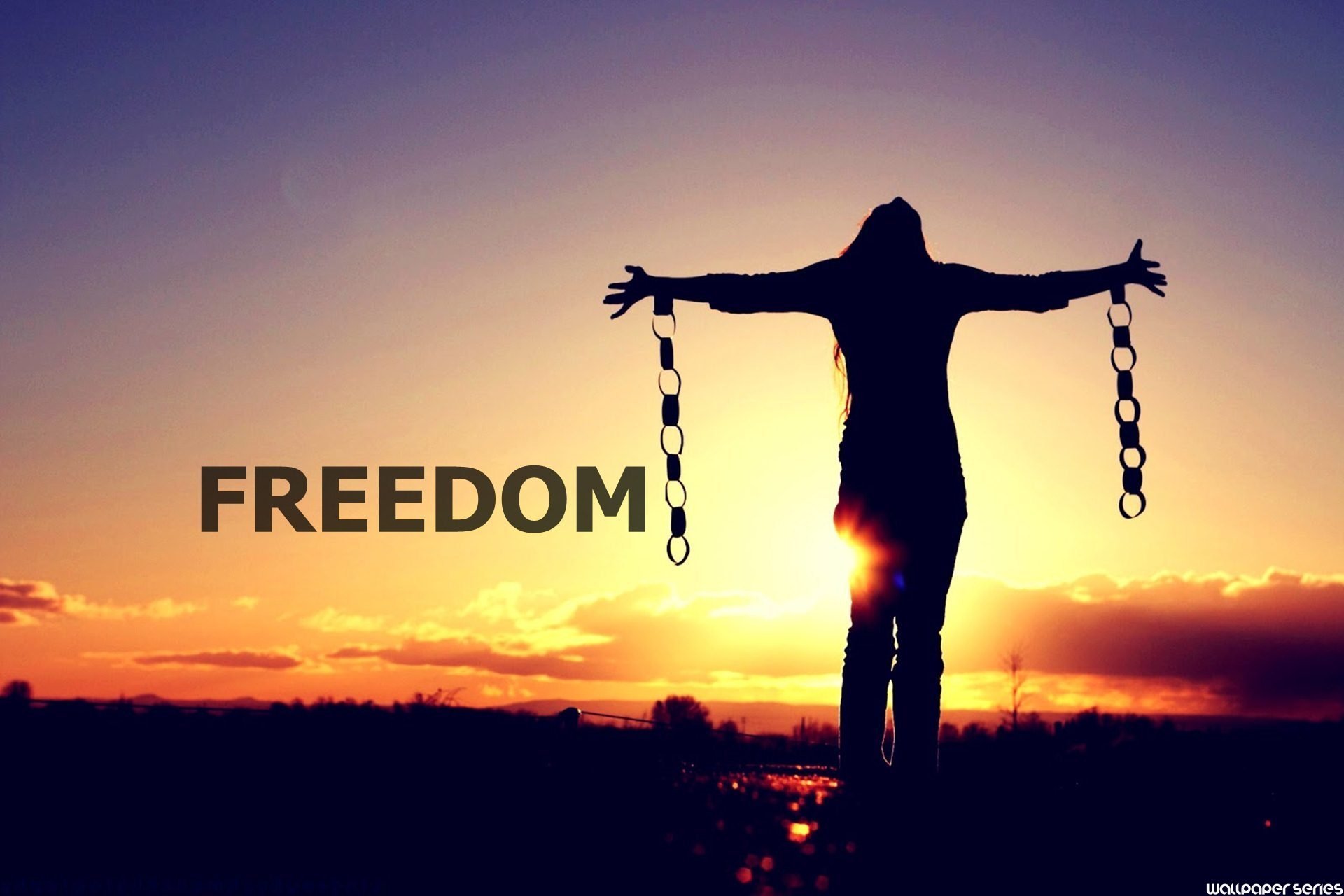Freedom Pros - Unlocking Your Potential
Have you ever stopped to consider what it truly means to experience a sense of being unburdened, to have the space to choose your own way? It's a feeling many people long for, that deep satisfaction of making your own path. This idea of having the ability to act, to think, and to move without constraint, is that a very powerful force in our lives, shaping the personal choices we make and the bigger pictures we paint for our future.
For many, the idea of having the ability to shape their own journey, to follow their own thoughts, to make choices about their life without constant outside pressure, feels like a real gift. It's about having the space to be yourself, to explore possibilities, and to build something that reflects who you are and what you care about. This kind of personal leeway, you know, can truly open up new avenues for growth and a deeper sense of personal fulfillment, allowing individuals to pursue what matters most to them.
When we talk about the upsides of having this sort of personal leeway, we're really looking at how it helps us grow, innovate, and find our own unique place in the world. From the way we manage our daily digital interactions to the bigger historical movements that have shaped societies, the positive aspects of this kind of personal elbow room are pretty clear. It's about creating a setting where individuals and groups can truly flourish, pursuing their goals with a feeling of purpose and self-direction.
Table of Contents
- Digital Freedom Pros - How Tech Can Help You Focus
- Finding Your Focus - What Are the Freedom Pros of Blocking Distractions?
- Beyond the Screen - Can a Physical Vault Offer Freedom Pros?
- Shaping Your Own Path - What Are the Freedom Pros of Self-Determination?
- Historical Impacts - How Have Movements Shown Freedom Pros?
- Expanding Horizons - The Freedom Pros of Strategic Growth
- Personal Liberties - Are There Freedom Pros Even in a Controlled Setting?
- The Journey to Statehood - Understanding the Freedom Pros of Annexation
Digital Freedom Pros - How Tech Can Help You Focus
In our very busy digital world, finding moments of true concentration can feel like a bit of a challenge. It's almost as if every notification, every new tab, every little ping tries to pull your attention in a different direction. This is where tools designed to help you regain control really show their worth. Imagine having a simple way to put up boundaries against all those digital interruptions, allowing you to really get into your work or whatever you're trying to accomplish. It's about creating a personal space where you can think clearly, where your mind isn't constantly jumping from one thing to another. This kind of support for your focus, in some respects, is a huge advantage, letting you direct your mental energy where it matters most.
When you use something that lets you easily stop access to websites and applications that tend to pull you away, you start to see a real change in how much you get done. This kind of tool, like the original and very helpful website blocker, assists you in becoming more centered and getting more things finished. You don't have to tackle this on your own, either. The application makes those limits simpler to maintain, which is pretty helpful, actually. It’s about having a digital partner that supports your aim to be more present in what you’re doing, rather than constantly being pulled away by the endless stream of online content. This approach gives you a sense of command over your digital environment, which is a key part of the freedom pros we are exploring.
One of the really good things about these kinds of tools is their ability to work across all your gadgets. It’s pretty useful, you know, to set up a block on one machine and have it apply to your phone, your tablet, and any other device you might be using. This means your efforts to stay focused aren't limited to just one place; they extend wherever you go. With a premium version, you can typically add as many devices as you need and create your own specific lists of things to block. This level of customization allows you to shape your digital environment precisely to your needs, which is a definite plus for anyone looking to boost their output and reduce digital noise. This universal application is a significant part of the freedom pros that come with modern digital tools.
- Lauren London And Nipsey Hussle
- Louise Burns Silver
- Sssniperwolf Husband
- Taco Craft Cinco
- Oxford Athletic Club Wexford
Finding Your Focus - What Are the Freedom Pros of Blocking Distractions?
Thinking about how we manage our time online, it’s clear that things like browser extensions can really make a difference. Tools that help with managing your open tabs, for example, can speed up your internet experience by keeping things neat and tidy. But while those help with organization, something like a distraction blocker goes a step further. It helps you, basically, put a pause on the internet itself, or specific parts of it, when you need to concentrate. This means you can install this kind of assistance to stop access to sites that pull you away, specific applications, or even the whole internet on all your devices. It’s a pretty direct way to reclaim your attention and direct it toward tasks that require deep thought.
It’s almost like having a personal assistant for your focus. You can get this kind of helper for different types of computers and mobile devices, which makes it quite accessible for nearly everyone. Just a click to sign into the original and very good distraction stopper, and you're set. This sort of platform is, in some respects, a leader in helping people avoid digital interruptions, with millions of people using it to do their work with more attention and get more done. It truly supports a more productive way of working, by giving you the means to reduce the constant pull of the digital world. This capacity to create a focused work setting is a significant component of the freedom pros found in these applications.
Beyond the Screen - Can a Physical Vault Offer Freedom Pros?
Sometimes, the best way to deal with digital overload isn't just about software; it's about creating a physical boundary. Imagine a special container, a kind of vault, designed for our modern way of living. This kind of item is built to immediately stop all wireless signals from reaching whatever you place inside it. It’s like a tangible way to push back against the constant stream of digital information that can feel a bit overwhelming. This physical object offers a clear, definite way to step away from your devices, to give your mind a true break from the endless notifications and demands of the digital world. It provides a real sense of relief, a chance to disconnect in a very direct and undeniable way.
This physical separation, in a way, serves as a direct counter to that feeling of being swamped by screens and signals. It’s a simple, yet powerful, action you can take to regain some peace and quiet. When you put your device in such a vault, you're not just turning it off; you're creating a physical barrier that helps you fully detach. This provides a different kind of support for your well-being, helping you manage the constant presence of technology in your daily routine. It's about finding ways to create moments of calm and clear thought, away from the buzz of connectivity. This unique method of gaining distance from digital noise is another aspect of the freedom pros that can truly make a difference in your daily life.
Shaping Your Own Path - What Are the Freedom Pros of Self-Determination?
Moving beyond the digital world, the idea of having personal leeway, of being able to choose your own path, has a much broader meaning. It’s a continuous concept, and like many things, it has both good points and areas that might need careful thought. On one hand, it truly allows people to decide their own future, free from outside meddling, as long as their choices don't hurt others. This capacity to direct one's own life, to make decisions that reflect personal values and goals, is a very fundamental part of what it means to be human. It gives individuals the chance to build a life that feels authentic and meaningful to them, which is a pretty powerful thing, if you ask me.
This ability to make your own way means you can explore different ideas, try new things, and pursue your passions without constant approval from others. It’s about having the space to make mistakes and learn from them, to grow in directions that might not be obvious to everyone else. This kind of personal leeway is essential for personal growth and for finding out what truly makes you happy. It allows for a richness of experience that simply isn't possible when every step is dictated by external forces. This self-direction, in some respects, is the bedrock of innovation and personal fulfillment, making it a core element of the freedom pros that shape our existence.
Historical Impacts - How Have Movements Shown Freedom Pros?
Looking back at history, we can see many examples where people sought to gain or expand their personal leeway, often leading to significant positive changes. Think about the goal of the Freedom Summer, for example. Its main aim was to get more African Americans in Mississippi signed up to cast their votes. This effort was about giving people a voice, about allowing them to participate in the democratic process and shape their own communities. It was a clear push for greater fairness and for the ability of a group to exercise their basic rights. This kind of collective action to secure fundamental liberties is a profound illustration of the positive effects of seeking greater personal leeway.
The project also had a secondary aim, which was about setting up structures to support this newfound participation. This meant creating spaces and resources that would help people maintain their newly gained ability to influence their world. These historical movements show us that when people come together to claim their personal leeway, it can lead to deep and lasting changes in society. It’s about more than just individual choices; it’s about creating a setting where everyone has the opportunity to contribute and to have their say. This collective pursuit of greater personal leeway is, you know, a powerful force for progress and social betterment, highlighting the broad impact of freedom pros.
Expanding Horizons - The Freedom Pros of Strategic Growth
Considering other historical moments, the incorporation of new territories can also show certain advantages for the parties involved. For instance, the United States' acquisition of the Philippines had several good points. For the US, these advantages included increasing their military presence in a strategic area, improving their global trade connections, and gaining tactical benefits. From a nation's perspective, expanding influence and resources can be seen as a positive outcome, leading to greater security and economic opportunities. This kind of expansion, while complex in its broader implications, did offer clear strategic advantages to the acquiring power, which were considered significant at the time.
This pursuit of broader influence and resource access, in a way, reflects a national desire for greater scope and capacity. It’s about a country looking to secure its interests and improve its standing on the global stage. These kinds of moves, while often debated for their ethical dimensions, were undertaken with clear strategic goals in mind, aiming to provide benefits like increased trade routes or stronger defense positions. So, from the viewpoint of those seeking to expand their nation's reach, these outcomes were definite advantages. This demonstrates how even in large-scale geopolitical shifts, there are perceived benefits that contribute to a nation's sense of its own personal leeway and influence.
Personal Liberties - Are There Freedom Pros Even in a Controlled Setting?
Even in stories, we can explore the different ways personal leeway shows up. Think about the book "The Giver." What sort of personal leeway does the main character, Jonas, have within the rules of his community? It's interesting to consider, because his society is very controlled. Yet, Jonas does have the ability to not tell his dreams, to speak rudely, and even to lie. These might seem like small things, but within the very strict boundaries of his world, these are significant personal liberties. They show that even in a setting where most choices are made for you, there can still be small pockets of individual choice and self-expression. This highlights how personal leeway can exist in unexpected forms, even when broader choices are limited.
These unique permissions, you know, set Jonas apart and give him a different kind of experience than others in his community. His ability to keep secrets, to express himself in ways that are typically not allowed, gives him a sense of individuality that others lack. It’s a very subtle form of personal leeway, but it allows him a degree of self-determination that is quite powerful in his particular situation. This shows that the concept of personal leeway isn't always about grand gestures or sweeping changes; sometimes, it’s found in the quiet permissions, the small spaces where an individual can still be truly themselves. These personal permissions are, in some respects, a quiet but important aspect of the freedom pros he experiences.
The Journey to Statehood - Understanding the Freedom Pros of Annexation
Let's consider another historical event: the advantages and disadvantages of Texas becoming part of the United States during John Tyler's time as president. Texas had declared its independence from Mexico in early March of 1836, and then, nearly ten years later, it became a state in late December of 1845. For Texas, this move meant becoming part of a larger nation, which could offer stability, protection, and access to a wider economy. It was a step toward a more defined political status and a clearer future. This shift from an independent republic to a state within a union brought with it certain benefits that were seen as positive for the region and its people.
The motivations behind historical events, like the Spanish exploration and settlement of the Americas, often included the pursuit of wealth, especially valuable metals like gold and silver, and the aim of spreading their religion. From the perspective of the explorers and their sponsoring nations, these were clear advantages. The acquisition of new resources and the expansion of their cultural and religious influence were seen as significant gains. These historical examples, while complex and often viewed differently through time, show how the pursuit of perceived advantages, whether economic or ideological, can drive major historical shifts and lead to outcomes considered beneficial by the parties involved. This pursuit of perceived benefits is a recurring theme when we look at the historical aspects of freedom pros.
When we look at different ways of thinking, like the deconstruction approach in literature, or historical movements, like when Black people moved from the southern parts of the country to the northern parts during the Civil Rights period, we can find discussions about their good points and areas that might need careful thought. These discussions help us get a deeper grasp of the core ideas and repeating patterns in important works and historical periods. It's about looking at different angles and seeing how various actions and ideas had their own set of advantages for those involved. This kind of examination helps us appreciate the varied ways in which individuals and groups have sought to improve their circumstances and secure greater personal leeway.
This article explored the various advantages associated with the concept of personal leeway, drawing from both modern digital tools and historical events. We looked at how applications and physical devices can help individuals gain focus and manage digital distractions, leading to increased productivity and a sense of digital command. We also considered the broader idea of self-determination, where individuals have the ability to shape their own destiny without undue interference. Historical examples illustrated how movements aimed at securing voting rights, strategic national expansions, and even subtle personal liberties within constrained societies offered significant benefits to the groups or individuals involved. Finally, we touched upon how the pursuit of wealth and religious influence in historical conquests, and the implications of territorial annexations, were viewed as advantageous by the parties undertaking them.
Article Recommendations



Detail Author:
- Name : Joyce Leuschke
- Username : muriel45
- Email : marvin33@yahoo.com
- Birthdate : 2001-08-31
- Address : 9952 Gianni Bridge Gisselleborough, DE 25437-4646
- Phone : (502) 841-4654
- Company : Hyatt LLC
- Job : Medical Technician
- Bio : Ut dolores sint amet et inventore. Laboriosam quasi eaque consequatur quaerat a. Aperiam voluptatem et nulla.
Socials
twitter:
- url : https://twitter.com/heller1994
- username : heller1994
- bio : At occaecati eum quis ut enim sint aut. Tempore reiciendis et quas nihil omnis cupiditate nostrum. Accusamus quibusdam nobis ut minus deserunt dolores nihil.
- followers : 1550
- following : 2611
linkedin:
- url : https://linkedin.com/in/hellert
- username : hellert
- bio : Neque dicta et omnis id non est dolores.
- followers : 3272
- following : 234
facebook:
- url : https://facebook.com/tracyheller
- username : tracyheller
- bio : Nihil repudiandae voluptatibus tenetur enim possimus mollitia eligendi.
- followers : 5670
- following : 108
instagram:
- url : https://instagram.com/tracy6293
- username : tracy6293
- bio : Omnis soluta dolorem deleniti pariatur maiores totam. Commodi minus repellat fuga facilis.
- followers : 4568
- following : 236